7 Supplements for Kidneys That Improve Your Symptoms
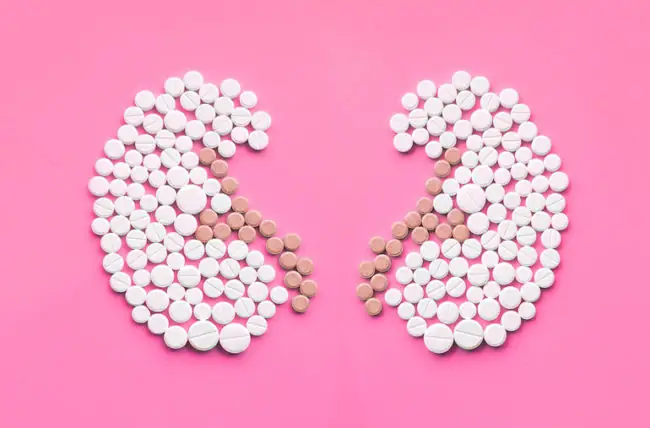
If you’ve got chronic kidney disease, you need to choose supplements and vitamins with great caution. Here are the best supplements for kidneys, as well as lengthy lists of products you must avoid.
Safety First
Make sure your condition allows you to use supplements — especially herbal ones.
There is a dramatic difference between healthy individuals who want to prevent any kidney condition and people who actually suffer from kidney disease. If there is nothing wrong with your kidneys, you can use a vast range of vitamins and supplements. If the health of your kidneys is compromised, even the best supplements for kidney repair can do more harm than good.
Thus, if you have kidney disease, be sure to consult an experienced doctor before you decide to take any supplements or vitamins. This is especially true for herbal supplements that are often (and totally erroneously) believed to be safe simply because they are of natural origin.
Such minerals as potassium and phosphorus very often need to be limited in the diet of people with kidney disease. Herbal supplements that contain significant quantities of these minerals can be downright dangerous for you.
The full list of these no-go herbal supplements is very long; among other herbs, it includes alfalfa, the root of bai Zhi, fruit and leaf of bitter melon, leaf of coriander, root and leaf of dandelion, evening primrose, flaxseed, leaf of garlic, the root of horseradish, flowers of Japanese honeysuckle, lemongrass, leaf and fruit of papaya, leaf of safflower, leaf of stinging nettle, and the seed of sunflower.
1. Alpha Lipoic Acid
Alpha lipoic acid (or simply ALA) is a compound that has pronounced antioxidant properties and boosts the action of other antioxidant compounds such as glutathione and vitamins C and E.
A 2019 study demonstrated that ALA could be of help for patients who undergo hemodialysis. The bioavailability of ALA goes down markedly if it is taken with food; it is therefore recommended that ALA dietary supplements (in doses of 200 to 600 mg) be taken either an hour before or two hours after a meal.
Here is one of the best supplements for kidney support with ALA on iHerb:
Alpha-Lipoic Acid, 180 capsules, 600 mg per capsule
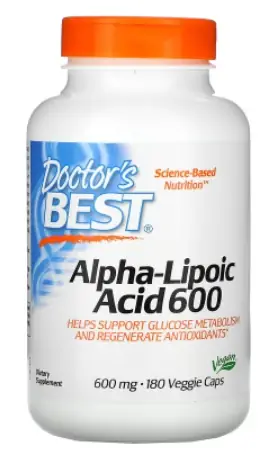
- Well-known brand
- Vegetarian
2. Glutathione and N-acetylcysteine
Your body uses glutathione for detoxification and prevention of oxidative stress. N-acetylcysteine is a chemical precursor of glutathione; a 2010 study showed that NAC supplementation could alleviate the symptoms of uremic anemia and reduce oxidative stress in patients who undergo hemodialysis.
While on the market, there are numerous supplements that contain glutathione itself, such products are believed to be less effective than NAC because of glutathione’s poor bioavailability. On the other hand, NAC is considerably better absorbed by the body.
Here is one of the top-rated supplements with glutathione on iHerb:
Glutathione, 250 mg per capsule by NOW Foods
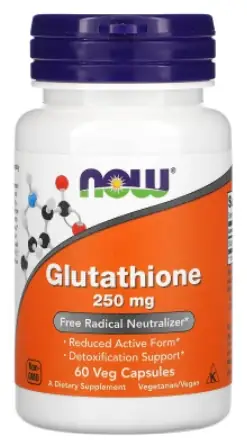
- 60 capsules — enough for two months of use
- Dependable brand
And here is one of the most popular NAC products:
NAC Detox Regulators, 600 mg per capsule by Doctor’s Best
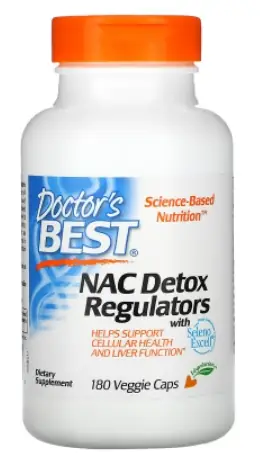
- 180 capsules — enough for three months of use
- To boost glutathione production and action, each capsule additionally contains molybdenum (50 mcg) and selenium (50 mcg)
- Reliable brand
3. Andrographis
Andrographis is a shrub that comes from India and Sri Lanka.
A 2006 study demonstrated that bioactive compounds that are contained in Andrographis could protect kidneys from such a common toxin as alcohol. Although it is strongly recommended that if you have kidney disease, you totally abstain from alcohol, it is believed that Andrographis can protect your kidneys from other toxins as well — further research into this matter is required. In various studies of the supplement, Andrographis was used in doses that ranged from 90 to 600 mg. It is usually well-tolerated with the most common side effects of high doses being vomiting and diarrhea.
Here is one of the best Andrographis supplements for healthy kidneys on iHerb:
Andrographis Extract, 90 capsules, 400 mg per capsule by NOW Foods
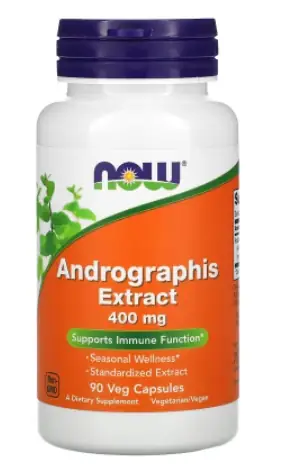
- Non-GMO
- Vegetarian
- Well-known brand
4. Moringa
Moringa is one more plant that comes from India. Not only was it known in folk medicine for thousands of years, but the leaves and pods of the plant are also widely used as food.
A 2016 study made a conclusion that moringa can decrease blood levels of such waste products as urea and creatinine. What’s more, in another 2016 study, it was demonstrated that Moringa protects kidneys from the toxic action of a popular painkiller Paracetamol (acetaminophen). Unfortunately, the objects of both studies were rodents, not people, so additional research into the beneficial properties of Moringa is required.
Moringa is considered very safe: the upper limit of its daily intake is 11 teaspoons of ground powder.
Here is one of the best Moringa supplements for kidney function on iHerb:
Organic Moringa Powder, 240 g (8.5 oz) by MRM
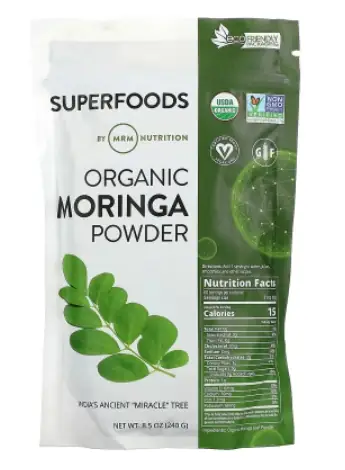
- Vegan + certified organic
- 2 teaspoons per serving
- Can be added to your baking, beverages, cereal, smoothies, yogurt
- Does not contain artificial fillers or additives
If you don’t like the greenish color the ground powder gives to your food, you can use capsules with Moringa extract. Here is one of the highest-rated Moringa extract supplements:
Moringa, 90 capsules, 700 mg per capsule by Organic India
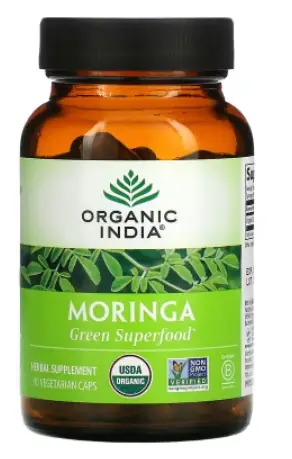
- Serving size: 2 capsules
- Organic and vegetarian
- Non-GMO
5. Resveratrol
Resveratrol is a biologically active polyphenol that is obtained from blueberries, raspberries, and mulberries, as well as from the skin of grapes. Known for its antioxidant properties, resveratrol is currently being investigated as a possible treatment for chronic kidney disease patients. Studies on animals demonstrated that this compound can ameliorate various types of renal injury, including drug-induced and sepsis-related injury.
Resveratrol is usually very well tolerated if taken in a daily dose that does not exceed 1,500 mg. Typical side effects of overdosing include nausea and stomach pain. In some people, resveratrol was reported to cause loose stools and increase the frequency of bowel movements.
Here is one of the best resveratrol supplements for kidneys health on iHerb:
Resveratrol, 120 capsules, 200 mg per capsule by NOW Foods
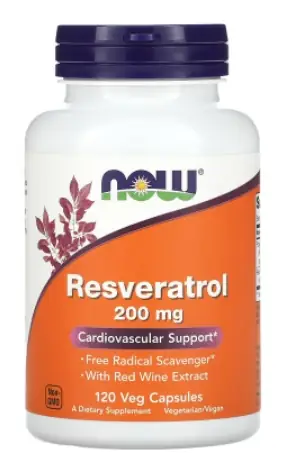
- Non-GMO and vegetarian
- Each capsule additionally contains 10 mg of red wine extract (alcohol-free)
- Dependable brand
6. Probiotics
Research suggests that dysbiosis in the gut can lead to increased urea toxin levels. A 2018 study demonstrated that probiotic supplementation that reintroduces beneficial bacteria can bring down levels of urea toxins and help kidney function.
Here is one of the top-rated probiotic products on iHerb:
LactoBif Probiotics, 30 Billion CFU by California Gold Nutrition
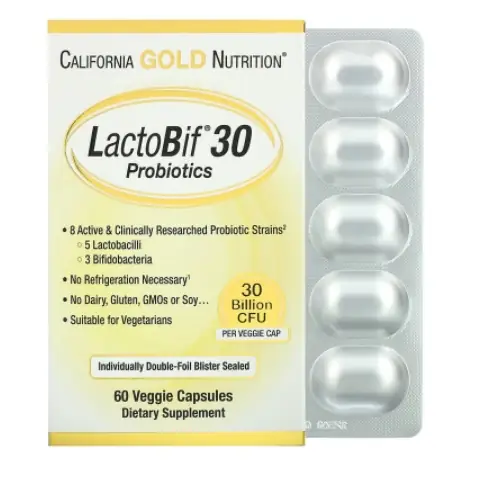
- 8 clinically researched beneficial bacteria strains
- 30 billion colony-forming units per serving
- Double-foil blisters protect the content from light, moisture, and oxygen
- Well-known brand
7. Vitamins
People with kidney disease often need to take medicines that may deplete their levels of vitamins. What’s more, you might have to go on a specific diet that can be poor in some vitamin types. Thus, vitamin complexes are among the best supplements for kidney disease.
Exercise Caution
Unfortunately, there are certain vitamins that patients with kidney disease must avoid. Take these vitamins only if an experienced doctor prescribed you them:
- Vitamin A: in people with chronic kidney disease, its levels are usually elevated, and additional supplementation may have a toxic effect;
- Vitamin D: the required daily quantity of this vitamin depends on calcium, phosphorus, and PTH levels and can be safely determined only by an experienced doctor;
- Vitamin E: its levels are normal in most patients; high doses of it may hamper blood clotting;
- Vitamin K: just like it is with vitamin E, there is usually no lack of it; excessive amounts can cause increased blood clotting
- Vitamin C: while beneficial for general health, it should not be taken in excessive quantities (more than 60-100 mg per day) as it may lead to the depositing of oxalates in the bones and soft tissues.
Recommended Doses
Here is the recommended daily dosage of vitamins obtained from supplements for patients with chronic kidney disease:
- Vitamin B1: 1.5 mg/day
- Vitamin B2: 1.8 mg/day
- Vitamin B3: 14-20 mg/day
- Vitamin B5 (pantothenic acid): 5 mg/day
- Vitamin B6: 5 mg/day (or higher doses if taken together with folic acid (B9) and vitamin B12 to reduce homocysteine levels — in this case, it needs to be prescribed by an experienced doctor)
- Vitamin B7 (biotin): 30-100 mcg/day
- Vitamin B9 (folic acid): 1 mg/day (taken together with vitamin B12)
- Vitamin B12: 2-3 mcg/day
Vitamins to Buy
If you wonder what the best B vitamin supplement for kidney health is, consider buying this product:
B-Complex, 100 tablets by Sundown Naturals
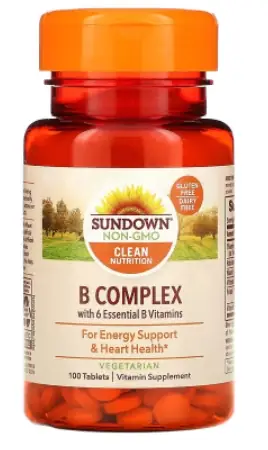
- Unlike numerous other multivitamin formulas available on the market, this supplement does not feature excessive amounts of B vitamins that may overload your kidneys.
- Vegetarian, gluten, and dairy-free
- Dependable brand
There are few biotin supplements that do not feature highly excessive doses of this vitamin. You might try this product and divide one tablet into three parts for your daily use:
Biotin, 100 tablets, 300 mcg per tablet by Solgar
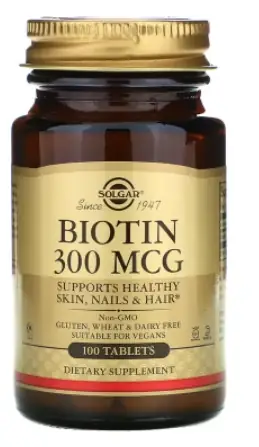
- Well-known brand
- Non-GMO, vegan and gluten free
Most vitamin C supplements contain extremely high doses of ascorbic acid. This supplement (although meant for kids, it can be used by adults as well) has exactly the quantity of ascorbic acid your kidneys can cope with:
Orange Juice Jr., Chewable Vitamin C, 180 tablets, 100 mg per tablet by NaturesPlus

- Vegan and gluten free
- Low on added sugars
- Gentle to the stomach
Lifestyle
It’s no use wondering what are the best supplements for kidney disease if you do not implement healthy lifestyle changes. It is strongly advised that you:
- quit smoking;
- reduce your alcohol consumption to an absolute minimum;
- untreated hypertension is a major load on your kidneys: consult your doctor about what you can do to improve its symptoms;
- if you are overweight or suffer from obesity, your kidneys need to work more. Discuss with your doctor how you can safely shed extra pounds;
- aerobic exercise was found to improve the quality of life in people with kidney disease. Walking, swimming, cycling, jogging — choose the activity you like best and devote at least 30 minutes a day to it;
- eat more such sources of dietary fiber like legumes, vegetables, fruit, cereals, and whole grains;
- avoid such foods as salt, refined sugars, and red meat;
- discuss with your doctor whether it is safe for you to use non-steroidal anti-inflammatory drugs (NSAIDs) as they were linked to acute kidney injury.
Now you know what the best supplements for kidneys are and what products need to be avoided. Take care and stay healthy!